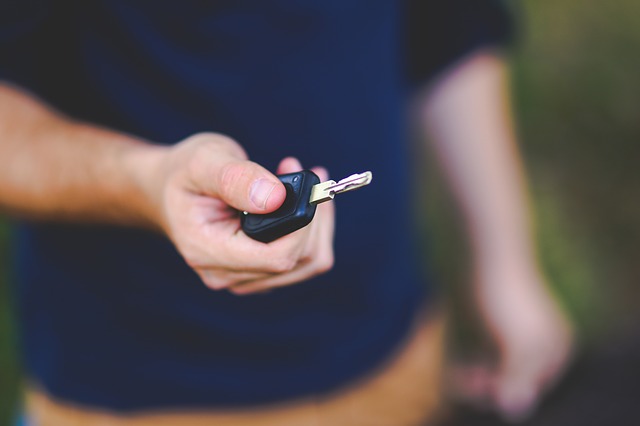What do car keys and cell phones have in common?
A recent survey places both phones and car keys at the top of the list for items you’re most likely to lose. Yet, while it may be annoying to not know where your car keys are, it’s even worse to know where they and not be able to reach them.
Did you just realize, “Ah!, I left my keys in the car”? Rather than beating yourself up, now is the time to create a plan. The longer you wait, the higher your chances are of the situation getting worse.
Lockouts aren’t just inconvenient, in some cases, they’re dangerous. Being stuck outside of your car in perilous weather, or all alone in the middle of the night, are just a couple of the scary scenarios that could happen to you.
Don’t wait around hoping a solution will come your way. Read on to find out the top 3 tips for locking your keys in your car.
Yikes I Left My Keys in the Car
You realize your keys are gone, now what? Unable to get them out of the car on your own, you’re going to have to reach out for some type of assistance. Here are a few of your options once you realize, “Yikes, I left my keys in the car!”.
- Emergency Services
- Roadside Assistance
- Proactive Solutions
The biggest issue most drivers face is having to decide what course of action will work best for them. Should they reach out and dial 9-1-1, or would calling local roadside services to be more appropriate? It is also recommended to get in touch with a low rate car key replacement and find the best solution with the locksmith service their offer.
Next, we’ll explore how each option works, and when it’s the best choice for you.
1. When to Call Emergency Services
Once you realize you’re keys are stuck in the car, you’ll need to determine if it’s time to seek the help of emergency services. Here are some tips for when to call 9-1-1 :
- The location you’re in isn’t safe
- Severe weather is coming or present
- There’s a child or pet in the car
Let’s look at why these situations qualify as emergencies.
Unsafe Location
An unsafe location is any place where you feel you’re in some type of danger. For example, if your car isn’t fully out of the road, oncoming traffic would pose a major threat. At any time a distracted vehicle could strike you, causing injuries and possibly even death.
Dangerous Weather
Another example of an unsafe location would be somewhere severe weather is approaching. Lightning storms, high winds, and intense rain go from inconvenient, to deadly when you’re stuck outside.
Child or Pet Inside Vehicle
Finally, it’s always appropriate to call 9-1-1 when you lock your keys in the car, and a child or pet is still in the vehicle. You only have a matter of minutes before the heat rises to a fatal temperature.
On a sunny day, say around 70 degrees outside, the inside of your car can rise to 113 degrees after only one hour. These high temperatures can cause vehicular stroke, brain damage, and death.
2. Tips for Calling Roadside Service
If a friend or family member has always been the one to handle car problems, roadside services may feel like a foreign concept. Here are a few tips to follow whenever calling for roadside help.
- Verify if you already have a roadside plan
- Avoid filing an insurance claim
- Explore tow trucks and locksmiths
It’s surprising how often people end up paying for roadside help, even though they already have prepaid coverage elsewhere. Many roadside plans will include coverage for locksmiths and tow trucks. To learn more about roadside services like those, check out these benefits. If you share your vehicle with someone else, ask them if there’s already an active roadside plan in place for lockout situations.
Avoid Insurance Claims
Now, you might be thinking, “No worries, my car insurance covers roadside help!”. While that may be true, roadside coverage through your car insurance isn’t the same as having a separate roadside plan.
Every time you use your roadside coverage, your insurance company can calculate it as a type of claim. While it won’t be the same as placing a major claim with your insurance, roadside claims can still raise your rates.
3. Simple Proactive Solutions
While you might not be able to predict your next lockout, you can get ahead of the problem by being proactive. With a few proactive solutions, you’ll be able to resolve any lockout situation in a matter of minutes.
Here are a few proactive solutions to prepare for lockouts:
- Hide a spare key on your car
- Have a plan in place
- Car features
If you’re going to hide a spare key in your car, you’ll need to purchase a device-specific for this purpose. The device you buy will be a type of magnetic box, specifically made for concealing your spare key.
Never Hide Ignition Keys
Keep in mind however that the hidden key should only be able to unlock your door or trunk. Never hide an ignition key on the outside of your vehicle. Doing this is just an invitation for a car thief to take your car off your hands.
Avoid Lockouts in the First Place
Now, you’ll know what to do the next time you realize, “I left my keys in the car”. However, it’d be even better if you never locked your keys in the car in the first place.
To help prevent a lockout from ever taking place, it can help to have a routine when leaving your vehicle. Your routine should consist of putting the keys in one safe place immediately after turning off the car. This way, you won’t have to worry about a distraction causing you to leave your keys behind.
We hope our tips will help you drive with a strong peace of mind. Calling emergency services, seeking out a professional, or having a backup plan, are all options to get you back on the road again.
Ready to learn a few more tips and tricks to make your life easier? Check out our lifestyle section today!




